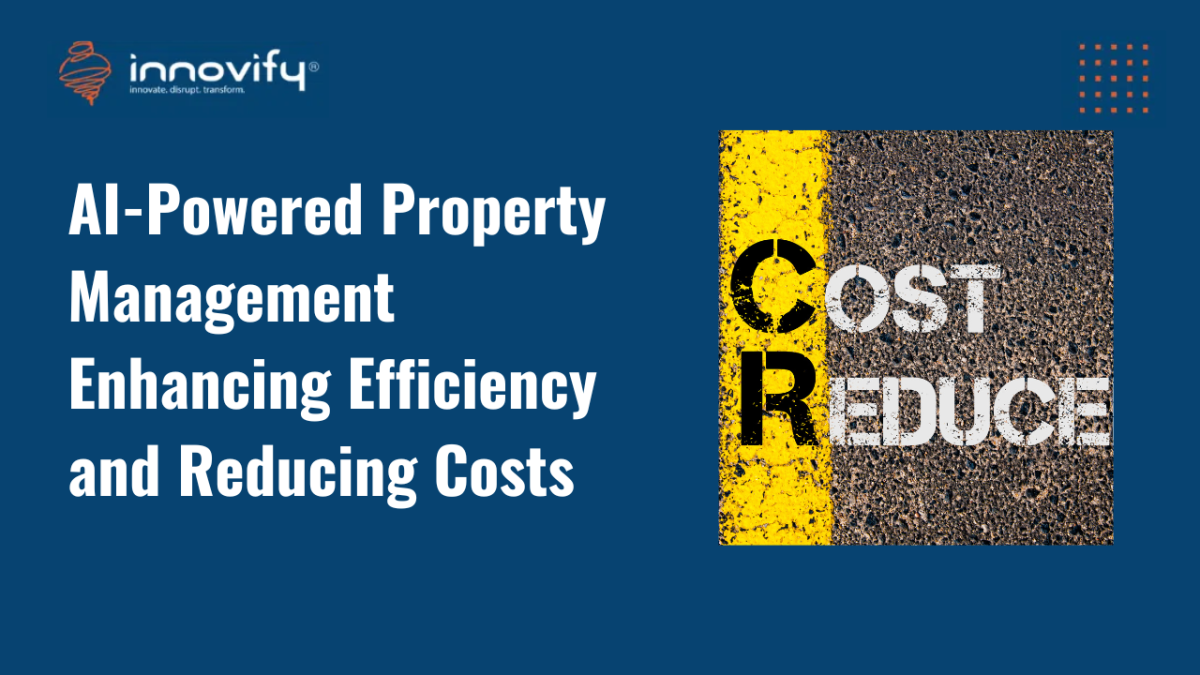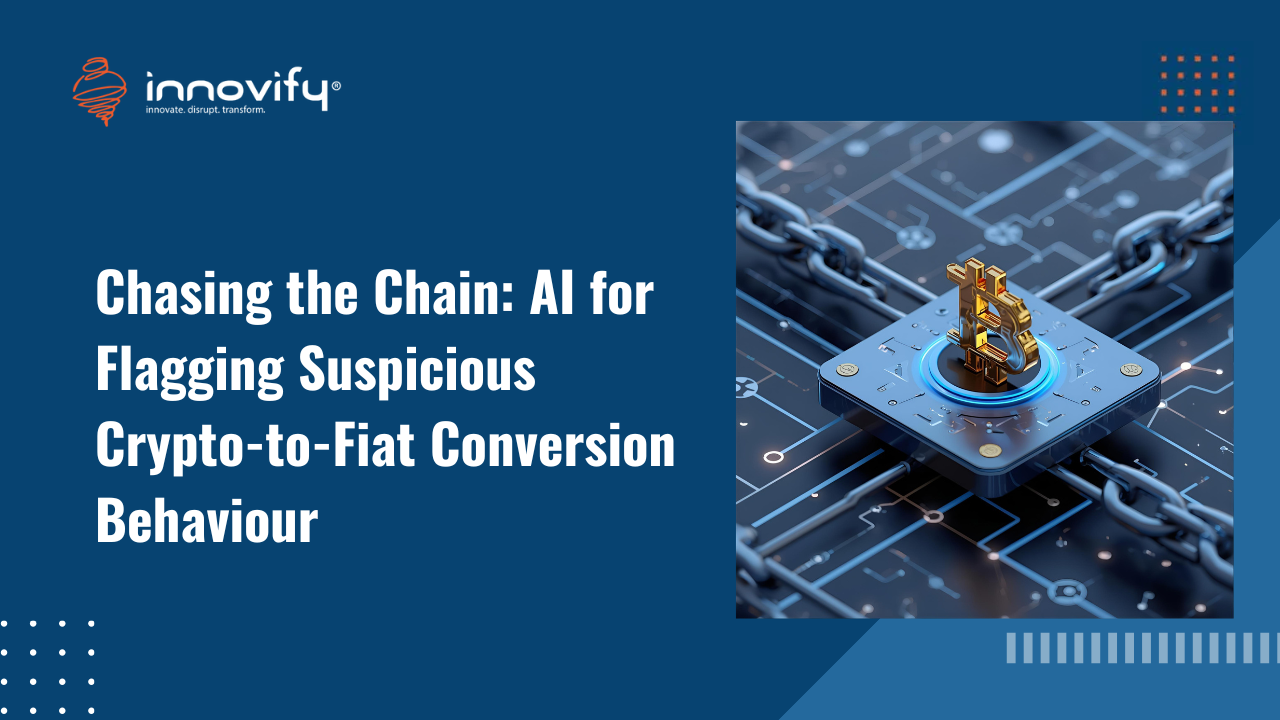AI/ML
AI-Powered Property Management: Enhancing Efficiency and Reducing Costs
The property management industry has traditionally been labor-intensive, involving a wide range of tasks from routine maintenance to tenant relations. However, artificial intelligence (AI) is revolutionizing how properties are managed, offering unprecedented levels of efficiency and cost savings. AI-powered solutions are streamlining operations, enhancing tenant satisfaction, and driving down expenses, making them indispensable tools for modern property managers.
The Role of AI in Property Management
AI is transforming property management by automating routine tasks, predicting issues before they arise, and improving communication with tenants. Here’s how AI is making a difference:
1. Predictive Maintenance
Traditional Approach: Maintenance has typically been reactive which can lead to higher costs and tenant dissatisfaction due to unexpected breakdowns and prolonged downtimes.
AI-Powered Solution: AI uses data from sensors, historical maintenance records, and environmental factors to predict when equipment or systems are likely to fail. This allows property managers to perform maintenance proactively, preventing breakdowns and extending the lifespan of assets. Predictive maintenance reduces emergency repair costs and minimizes disruptions for tenants, ultimately leading to significant cost savings.
2. Efficient Energy Management
Traditional Approach: Energy management often involves manual monitoring and adjustments, leading to inefficiencies and higher utility bills.
AI-Powered Solution: AI systems can monitor and analyze energy usage patterns, optimizing heating, cooling, and lighting based on occupancy and weather conditions. Smart thermostats and AI-driven energy management platforms automatically adjust settings to ensure optimal energy consumption, reducing waste and lowering utility costs. Some AI systems can even negotiate better energy rates, further driving down expenses.
3. Enhanced Tenant Relations
Traditional Approach: Managing tenant communications and addressing concerns is time-consuming and often inconsistent. Delays in responding to tenant requests can lead to dissatisfaction and higher turnover rates.
AI-Powered Solution: AI-driven chatbots and virtual assistants can handle tenant inquiries 24/7, providing instant responses to common questions and facilitating maintenance requests. These systems can also keep track of tenant preferences and history, offering personalized experiences that enhance tenant satisfaction. By automating these tasks, property managers can focus on more strategic aspects of their role, while ensuring that tenants receive prompt and consistent service.
4. Streamlined Leasing Processes
Traditional Approach: The leasing process, from tenant screening to lease signing, is often manual and paperwork-intensive. This can lead to delays, errors, and higher administrative costs.
AI-Powered Solution: AI can automate many aspects of the leasing process. For example, AI-driven tools can screen tenants by analyzing their financial data, credit history, and even social media profiles to assess risk. Automated lease generation and digital signatures streamline the process, reducing errors and speeding up transactions. This not only saves time but also lowers the cost of managing leases.
5. Market Analysis and Rent Optimization
Traditional Approach: Setting rental rates typically involves comparing similar properties in the area, which can be time-consuming and may not always reflect current market conditions.
AI-Powered Solution: AI can analyze vast amounts of market data in real-time, including local economic trends, demand-supply dynamics, and competitor pricing. This allows property managers to set optimal rental rates that maximize occupancy while ensuring competitive pricing. AI-driven rent optimization tools can also adjust prices dynamically based on market conditions, ensuring consistent revenue streams.
6. Reduced Vacancy Rates
Traditional Approach: Finding and retaining tenants can be challenging, especially in competitive markets. High vacancy rates lead to lost revenue and increased marketing costs.
AI-Powered Solution: AI can identify trends in tenant behavior and preferences, helping property managers target the right demographics with tailored marketing strategies. Additionally, AI can predict when tenants are likely to move out, allowing property managers to plan ahead and reduce vacancy periods. By improving tenant retention and attracting the right prospects, AI helps maintain high occupancy rates and steady rental income.
How can artificial intelligence enhance property management?
- Predictive Maintenance: AI algorithms can analyze historical maintenance data to predict potential equipment failures, allowing for proactive maintenance and reducing unexpected downtime.
- Tenant Screening and Selection: AI-powered tools can quickly analyze vast amounts of tenant data, including rental history, credit scores, and social media activity, to identify reliable and responsible tenants.
- Automated Rent Collection: AI can automate rent collection processes, including sending reminders, processing payments, and managing late fees, saving time and reducing administrative costs.
- Intelligent Chatbots: AI-powered chatbots can handle tenant inquiries 24/7, providing instant support and resolving common issues without human intervention.
- Data-Driven Decision Making: AI can analyze large datasets to identify trends, optimize operations, and make informed decisions about pricing, marketing, and property improvements.
How AI can be used to reduce costs?
- Reduced Operational Costs: AI automation can streamline various tasks, such as tenant screening, lease renewals, and maintenance requests, reducing the need for manual labor and associated costs.
- Lower Maintenance Costs: Predictive maintenance powered by AI can minimize unexpected breakdowns and costly repairs, leading to significant cost savings.
- Improved Tenant Retention: AI-powered tools can enhance tenant satisfaction by providing timely support and addressing issues promptly, reducing turnover costs.
- Enhanced Property Value: By optimizing operations and improving tenant satisfaction, AI can contribute to increased property value and higher rental income.
How will AI increase efficiency?
- Faster Response Times: AI-powered tools can automate routine tasks and provide real-time insights, enabling property managers to respond quickly to tenant requests and emergencies.
- Improved Decision Making: By analyzing vast amounts of data, AI can help property managers make informed decisions about pricing, marketing, and investment strategies.
- Enhanced Tenant Experience: AI-powered chatbots and automated services can provide a seamless and efficient tenant experience, leading to higher satisfaction and retention.
- Increased Productivity: By automating repetitive tasks, AI frees up property managers to focus on strategic initiatives and high-value activities.
How is AI more cost efficient?
- Reduced Labor Costs: AI automation can reduce the need for manual labor, leading to significant cost savings.
- Improved Resource Allocation: AI-powered analytics can help property managers optimize resource allocation, such as maintenance schedules and staffing levels.
- Minimized Risk: Predictive maintenance and risk assessment tools powered by AI can help identify potential issues before they escalate, reducing the risk of costly damages.
- Increased Revenue: By improving tenant satisfaction, optimizing operations, and making data-driven decisions, AI can contribute to increased revenue and profitability.
AI Development Services, Innovify, How to Choose Your AI Development Partner, Step-by-Step Guide: How to Build a Profitable AI Startup
As the real estate industry embraces AI, property management companies are increasingly seeking AI development company to implement cutting-edge solutions. When choosing an AI development partner, consider factors such as expertise, experience, and a proven track record in delivering successful AI projects. By partnering with the right AI development firm, property management companies can unlock the full potential of AI and gain a competitive edge in the market.
Cost-Saving Benefits of AI-Powered Property Management
The integration of AI into property management offers substantial cost-saving benefits:
- Lower Maintenance Costs: Predictive maintenance reduces emergency repairs and extends the lifespan of assets, leading to significant savings.
- Reduced Energy Bills: AI-driven energy management optimizes consumption, cutting utility costs.
- Decreased Administrative Expenses: Automation of leasing processes and tenant communications reduces the need for manual intervention and lowers staffing costs.
- Optimized Rental Income: AI helps set competitive rental rates and reduces vacancies, ensuring consistent revenue streams.
Conclusion
AI-powered property management is not just a technological trend; it’s a strategic advantage that enhances efficiency and reduces costs. By automating routine tasks, improving tenant relations, and optimizing operations, AI is transforming the way properties are managed. As AI technology continues to evolve, property managers who embrace these innovations will be better positioned to thrive in a competitive market, delivering superior service while maximizing profitability.
In an industry where margins are often tight, the cost-saving benefits of AI are too significant to ignore. By integrating AI into their operations, property managers can achieve greater efficiency, lower expenses, and ultimately, a stronger bottom line.




